#Richard Dolan
Text
youtube
10 UFO LANDING CASES OF THE LATE 20TH CENTURY | Richard Dolan Show
Join UFO historian Richard Dolan as he delves into ten of the most compelling and descriptive UFO landing cases spanning from 1976 to 2000. This presentation explores incidents from around the globe, showcasing the tangible evidence and eyewitness accounts that make these cases stand out. From animal mutilations in New Mexico to mysterious landings in China, Peru, Brazil, South Africa, and notable incidents in the Soviet Union, each case is meticulously examined. Dolan also discusses the implications of these encounters, including technological insights and the global impact of the UFO phenomenon.
Cases Covered:
1. New Mexico 1976
2. China, 1977
3. Argentina, 1979
4. United Kingdom, 1980
5. USSR, 1985
6. USSR, 1990
7. Peru, 1996
8. Brazil, 1997
9. South Africa, 1998
10. Malaysia, 2000
#Youtube#ufo landing#ufo#ufology#ufo sightings#aliens and ufos#ufo community#uap#richard dolan#uap disclosure
12 notes
·
View notes
Text
Zodiac-ryhmä: Sedge Mastersin tarina
kirjoittanut Richard Dolan Kesäkuussa 2019 edesmenneen tohtori Edgar Mitchellin kuolinpesästä vuoti maailmalle useita tärkeitä asiakirjoja. Tunnetuimpia ovat tohtori Eric Davisin vuonna 2002 kirjoittamat muistiinpanot hänen tavattuaan eläkkeellä olevan amiraali Thomas R. Wilsonin. Ymmärrettävästi nämä muistiinpanot hallitsivat huomiotamme verrattuna kaikkiin muihin Mitchellin jäämistöstä tulleisiin asiakirjoihin. Ne olivat ylivoimaisesti kiinnostavimmat. Mutta toinen huomionarvoinen asiakirja, joka aiheutti lyhyen […] https://eksopolitiikka.fi/ufot/zodiac-ryhma-sedge-mastersin-tarina/
0 notes
Video
youtube
Richard Dolan, Daniel Sheehan, Linda Howe LIVE COMMENTS Elizabeth Vargas...
this all going so fast. I’ll keep to the side that has Daniel Sheehan as defense.
1 note
·
View note
Text

Grab everything you can in the dungeon -- the motto of thieves and tentacle monsters alike (poster of Richard T Dolan's cover art from Adventurer #6, January 1987)
#D&D#Dungeons & Dragons#Richard T Dolan#Adventurer magazine#fantasy#fantasy art#dungeon#treasure#tentacle monster#monster#dnd#Dungeons and Dragons
217 notes
·
View notes
Text
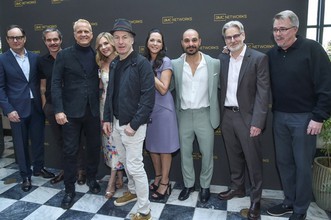
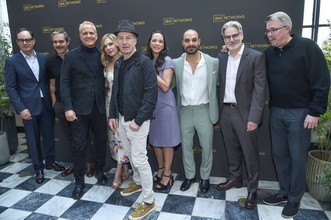
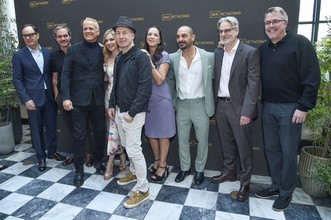
AMC Networks' Emmy Brunch
14 Januari 2024 (11:25)
Dan McDermott, from left, Tony Dalton, Patrick Fabian, Rhea Seehorn, Bob Odenkirk, Kristin Dolan, Michael Mando, Peter Gould and Vince Gilligan arrive at AMC Networks' Emmy Brunch on Sunday, Jan. 14, 2024, at LAVO Ristorante in West Hollywood, Calif. (Photo by Richard Shotwell/Invision/AP)
#Tony Dalton#AMC Networks' Emmy Brunch#2024#Dan McDermott#Patrick Fabian#Rhea Seehorn#Bob Odenkirk#Kristin Dolan#Michael Mando#Peter Gould#Vince Gilligan#Richard Shotwell#event#Emmy's#Lalo#Lalo Salamanca#Eduardo Salamanca#Howard Hamlin#Kim Wexler#Saul Goodman#Nacho#Nacho Varga#Ignacio Varga#Better Call Saul#Emmys
14 notes
·
View notes
Text
The Climate Crisis
By Richard E. Hyman
Distinguished Visiting Professional and Adjunct Professor, Waide Center for Applied Ethics, Fairfield University
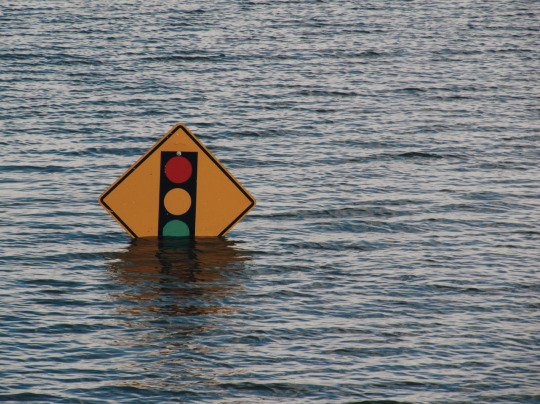
“The biggest threat to our future is thinking that someone else will lead, that someone else will solve the climate crisis.”
Last year, Fairfield University’s Waide Center for Applied Ethics sponsored a multidisciplinary faculty panel for a university-wide and community discussion about how their respective areas of study addresses issues of climate change and justice.
This event was part of the Worldwide Climate and Justice Education Week, a global initiative led by Bard College, promoting dialogue on climate and justice on campuses and in communities around the world.
Too often climate conversations are restricted to sustainability and climate science programs. To truly solve the climate crisis, we need everyone who is concerned about climate change and our future to talk about climate, and to act: academics, activists, artists, businesses, community members, faith leaders, governments, innovators, nonprofits, students, writers and more.
In 2023, 58,000 people in 61 countries participated in 285 events. Fairfield University was one of them, focused on the critical work ahead, and our shared resilient future. The thinking is that although we cannot stop today’s climate change, if we talk about it and take action, we can better deal with it, mitigate the impact, and importantly take measures to prevent it in the future.
Making climate an event helps students understand that they can make a positive difference with their life’s work. By engaging students in creative, interdisciplinary ways, we can help them explore how climate applies to their respective areas of study and personal interests, so they can learn how to favorably impact climate solutions, both as students and in their careers or avocations.
The following is a selection from each professor’s comments, in the order in which they were presented. Science, business, mental health and ethics will be followed by my concluding remarks.
Dr. Kraig Steffen, PhD, associate professor of Chemistry, framed the conversation with the statement that “sustainability is the defining challenge of our current age.” He reflected on an image of earth as a miniscule, fragile blue dot within a vast universe.
Dr. Steffen noted the Intergovernmental Panel on Climate Change’s decade-over-decade, increasingly definitive language about the human influence on global climate change. In 2007, the panel said it “is very likely due to the observed increase in anthropocentric greenhouse gas concentrations”. In 2021: “…human activities, principally through emissions of greenhouse gases, have unequivocally caused global warming, with global surface temperature reaching 1.1°C above 1850–1900 in 2011–2020. Global greenhouse gas emissions have continued to increase, with unequal historical and ongoing contributions arising from unsustainable energy use, land use and land-use change, lifestyles and patterns of consumption and production across regions, between and within countries, and among individuals.”
Dr. Steffen attributed humankind’s sluggish response to societal, commercial and political inertia. He then offered some ways that we might respond, e.g., make informed choices, engage, vote and, instead of despairing, act.
Dr. Robert Nazarian, PhD, associate professor of Physics, commented that the first climate model in 1967 predicted a change in global mean temperature that is still consistent with the most recent climate models.
Dr. Nazarian stated that within the scientific community, warming based on human emissions is a settled matter, and that attention is now on the study and ramifications of extremes such as heat waves and the frequency and severity of storms.
Dr. Nazarian mentioned that research being conducted at Fairfield University, using climate model output, has contributed to the scientific community’s understanding of changes in extreme precipitation. For example, this research has recently shown that if emissions continue unchecked, the Northeast U.S. may experience a four-to-five-fold increase in the frequency of the strongest storms. He added that it’s important for scientific research to consider climate data equity. Most studies consider developed regions and neglect developing regions, which are often the regions that receive the worst impacts of climate change.
Dr. Noradeen Farlekas, PhD, CFA, assistant professor of the practice at Fairfield University’s Dolan School of Business, started with a question: Is business the problem or is business part of the solution to climate injustice…or both? Relative to this question, she posed another: Is it more impactful to divest from companies or invest for change?
Dr. Farlekas first focused on health inequity, referencing Harvard studies, which found significant evidence that economically disadvantaged racial and ethnic minorities were suffering adverse health effects related to long-term exposure to air pollution, unhealthy housing and other social determinants. Indeed, unequal exposure is environmental injustice, contributing to educational, racial, income, wealth, and housing inequity.
Dr. Farlekas also spoke about the cause and impacts of two of the largest corporate-induced climate catastrophes: the British Petroleum Deepwater Horizon oil spill, and the Volkswagen emissions scandal.
The British Petroleum Deepwater Horizon oil spill was one of the largest environmental disasters in world history. In 2014, a U.S. District Court judge ruled that because of ethics and governance lapses involving gross negligence and reckless conduct, BP was primarily responsible for the spill. The disaster inflicted immense harm on the environment, public health, and the company, which paid almost $21 billion in fines, the largest corporate settlement in U.S. history.
Like the BP oil spill, the Volkswagen emissions scandal involved ethics and governance lapses. Volkswagen admitted to cheating on U.S. emissions tests by using a software designed to measure emissions in an inaccurate, company-favorable way. The engines emitted nitrogen oxide pollutants up to 40 times above what is allowed in the U.S. Another ethics and governance issue. The result: significant harmful health and environmental impacts. Volkswagen paid a settlement of more than $35 billion.
Dr. Farlekas suggested that while companies, governments, and policies still cause negative impacts, there is a way for positive change to occur. She encouraged, voting (local, state, federal) and noted that laws and policies have a direct impact on the actions of both private and public companies (what, where, and how companies can conduct business).
She also mentioned that municipal bonds (state and local) are investable and can be the source of environmental and climate injustice—reminding the audience that it matters who is making decisions, for example the Flint water crisis.
Dr. Farlekas stated that another form of voting is at the corporate level, as proxy voting and shareholder proposals can influence corporate decisions, board composition, and transparency – issues that can influence workers’ rights, pay disparity, and a company’s direction. She provided two examples. First, in 1971, a coalition of faith-based investors filed a shareholder proposal requesting that General Motors (and later other companies) cease doing business in South Africa until apartheid was ended. The second example was how a small hedge fund, Engine No. 1, worked with the largest passive investment managers to change the composition of Exxon Mobil’s board in an effort to increase long-term shareholder value through a lower-carbon future.
Lastly, asset owners (for example, pension funds and endowment funds) can be part of the solution, particularly if they hire investment managers who incorporate analysis of environmental, social, and governance frameworks, and invest in ways that reduce the associated risks. Companies should consider all of their stakeholders and make decisions to create long-term shareholder value instead of focusing on short-term (i.e., quarterly) objectives.
Dr. Dilani Perera, PhD, professor, counselor education, addressed ecological grief, or climate grief, relatively new terms in the mental health field. This grief brings about fear of imminent, yet unknown loss, and apprehension about an unpredictable future. Although we can adapt to change, change often brings strong mental and emotional responses.
Grief is a natural human response to loss. But ecological grief may be unique.
When you're grieving for something specific, whether a person, a dog, a lifestyle, it's already gone. Climate change is intangible, relentless and ubiquitous, and it is an ongoing process. It's not over yet—so you can't come to terms with it, and you don't know exactly what's going to happen. This uncertainty makes ecological grief different.
When it comes to climate change, people tend to avoid speaking about their feelings. One reason is perhaps a fear of being judged. Fear combined with uncertainty leads to anxiety.
Climate grief can manifest itself in many ways, including:
Relationship conflict, such as when partners have difficulty deciding whether to have children.
Consumption choices, as when one struggles, wondering if something is a sustainable product.
Trauma, if family has been directly affected by climate change.
Also, there are those who do not believe in climate change. This denial makes grieving more complicated and even confusing at times, and it can also bring a sense of loneliness.
Dr. Perera, mentioned groups who are likely to most deeply feel climate grief:
Land stewards, such as indigenous communities, people who make their living off the land, climate scientists and activists, and those who enjoy the outdoors.
Younger people, as opposed to older people, who have more time on earth remaining, and want to enjoy that time.
Solutions include reminding yourself that you are not alone. Other people feel similarly. The developmental model of grief indicates that you go through three stages.
The first stage is "reacting," which you may already be doing. This is when you experience feelings.
The second and third stages are "reconstructing" and "reorienting." These two stages are related to how you process the climate changes.
Each person may need a different way to process, but feeling, talking, uniting, and acting are the broader categories of things to try. Finding other people who have similar concerns and feelings, and connecting with them, helps with isolation and loneliness. It also helps with the disenfranchisement one may feel due to the lack of cultural practices or family rituals for grieving this type of loss, and also the lack of social acknowledgement about ecological grief.
Becoming more informed about the specifics of how climate change is likely to impact in the near future also helps to put things in perspective.
If one has a religious orientation, faith is also a good place to talk, unite, and act. Non-religious spiritual practices can also help with grieving. Engaging in these practices with intentional focus on ecological grief may be helpful.
Finally, spending time in nature, appreciating, and connecting is important. Most people who lose a loved one regret not spending enough time with them. There is evidence that nature is good for your mental health. Nature is not only a source of anxiety, but also a source of strength for humans. She shows her ability to adapt, which is a lesson for all of us.
Dr. David Schmidt, PhD, associate professor and director of the Waide Center for Applied Ethics, noted that the problems of climate change include many ethics issues, and there is no shortage of ethical arguments about them. The arguments persist because they fail to persuade people or change their behavior.
He said that one reason might be that ethics principles and theories are highly abstract and theoretical. We grasp these principles and theories at an intellectual level, but they fail to move us at a deeper level. We are left unchanged and continue to act as we did before.
If we want to actually make a difference, ethically, we need to shift our perspective to a relational ethic of care, meaning that we are not isolated individuals. Rather, we exist in webs of relationships with others, ranging from people or groups that we’re very close to, to more distant connections, to people across the globe. Our ethical duties of responsibility and care for others are grounded in these relationships.
The key point for ethics of climate change, is that we need to re-examine our understanding of our relationship to our planet.
With the rise of industrialization, we came to view nature as an elaborate machine. We developed an impersonal relationship with nature that made it easier to manipulate our environment without much regard for our impact on it. But it wasn’t always this way. For long periods of human history, it was not uncommon for humans to view nature in kinship terms, sometimes perceiving the world as a nurturing mother.
Dr. Schmidt cited professor and author Robin Wall Kimmerer’s book Braiding Sweetgrass, in which she writes, “Restoring land without restoring relationship is an empty exercise. It is relationship that will endure and relationship that will sustain the restored land.” Kimmerer observes, “It’s not just land that is broken, but more importantly, our relationship to land.”
Further, Kimmerer speaks of “animacy,” expressing how sentient or alive the referent of a noun is. She writes:
“The animacy of the world is something we already know, but the language of animacy teeters on extinction-not just for Native peoples, but for everyone. Our toddlers speak of plants and animals as if they were people, extending to them self and intention and compassion—until we teach them not to. We quickly retrain them and make them forget. When we tell them that the tree is not a who, but an it, we make that maple an object; we put a barrier between us, absolving ourselves of moral responsibility and opening the door to exploitation. Saying it makes a living land into ‘natural resources.’ If a maple is an it, we can take up the chain saw. If a maple is a her, we think twice.”
Dr. Schmidt said that many dismiss kinship terms for nature as mere poetry or pretty fiction, but that we need language that reawakens ancient feelings of closeness to the earth. He thinks that the biggest ethics challenge today is to develop a relational ethic of care for the earth, that will not only persuade us about what is the right thing to do regarding climate change but also compel us to act.
Conclusion: In my Environmental Ethics class, we look at the local, national and global environment through an ethics lens. Students learn and think about topics they may have never been exposed to. Together, we contemplate what, if any, moral obligations we have to future generations and nature, including non-humans.
Many topics relate to the United Nations Sustainable Development Goals (SDGs), and virtually every topic is impacted by climate change:
Conservation of natural resources and habitats
Biodiversity, species survival and extinction
Pollution of air, water and soil
Sound, light and plastic pollution
Vulnerable populations and mass migrations due to sea level rise, food supply and starvation
Indigenous peoples including island nations and Native Americans
Government, politics and public policy
Business and technology solutions, including innovation related to renewable clean energy
Laudato Si, “Care for Our Common Home”
The objectives of the class include developing students’ ability to:
Understand, analyze and critically evaluate environmental matters through an ethics lens. By marrying the academic nomenclature and theories of ethics, with real-life dilemmas associated with climate change, students are stimulated to think in new ways.
Communicate one’s personal view and listen to other views. Students are challenged to think, and to communicate, both verbally and in writing. By articulating their feelings and new knowledge, as well as, importantly, the potential opposition’s position, they are being better equipped for civil discourse. That is to say, students are being prepared to have respectful conversation aimed at fostering understanding and constructive communication, where individuals within a group share different perspectives.
Fairfield students are smart, sincere, well-mannered and concerned. But their generation is also justifiably angry. Anger is a key driver of climate crisis engagement, particularly for collective action. When angered, rather than fearful or saddened, young people are more likely to see opportunities for action and engage with determination.
That is why the Waide Center sponsored participation in this 2023 global event and will do so again at the Dolan School of Business on April 4, 2024 at 7:00 p.m. For more information, please contact [email protected].
-----
Richard Hyman collaborates with the Dolan School of Business’ Entrepreneurship Center as a mentor for Fairfield StartUp. His career in business includes leadership positions at GE Capital, Verizon and Xerox, plus entrepreneurial ventures. Today he is Chairman of GreenIRR, Inc., a company founded by a Fairfield alumna, and focused on mitigating climate change. He also founded a nonprofit organization and public charity that fosters future leaders to protect the ocean. He authored FROGMEN, his personal account of diving aboard Jacques-Yves Cousteau’s ship Calypso. Richard is a public speaker, with keynotes including MIT Water. He led Connecticut’s delegation to the Blue Vision Summit in Washington D.C., joining ocean conservation leaders, scientists and explorers to discuss with Congress offshore oil drilling, ocean pollution, and coastal resilience. He collaborates on curriculum development and speaks to students worldwide on projects including SDG-focused climate action and innovation, a collaboration with Dr. Jane Goodall. A graduate of Furman University, he has also studied at Fairfield University, Georgetown and Yale.
#Richard Hyman#Dolan School of Business#Fairfield University#climate change#Waide Center for Applied Ethics
3 notes
·
View notes
Text
youtube
10 KEY FACTS ABOUT UAP | Richard Dolan Show
Join UFO historian Richard Dolan as he delves into the fascinating world of Unidentified Aerial Phenomena (UAP) and Unidentified Submerged Objects (USOs). In this exploration, Richard presents 10 key facts about UAPs, drawing from declassified documents, military encounters, and eyewitness accounts from around the globe. Discover how the Freedom of Information Act has revealed the US government's interest in UFOs, and learn about the long history of military confrontations with these mysterious objects.
Richard also explores the intriguing phenomenon of USOs, objects that have been tracked moving at exceptional speeds underwater. He discusses the phenomenon of UAP crash retrievals, the puzzling occurrence of missing time reported by witnesses, and the recurring theme of humanoid beings associated with UFO sightings.
Through it all, Richard’s meticulous research paints a compelling picture of the ongoing, global UAP phenomenon.
#uap #foia #disclosure
8 notes
·
View notes
Text
Richard Dolan kommentoi AAROn raporttia
Richard Dolan tarkastelee kriittisesti All Domain Anomaly Resolution Officen (AARO) äskettäin julkaisemaa raporttia. Hän syventyy tunnistamattomien ilmailmiöiden (UAP) alias UFOjen historialliseen katsaukseen ja kyseenalaistaa vallassa olevien instituutioiden avoimuuden ja rehellisyyden. Hän tarkastelee tarkkaan raportin väitteitä, siinä esitettyjen merkittävien todisteiden puutetta ja historiallisten tutkimusten vääristelyä. Dolan käsittelee myös kiehtovia kehityskulkuja, kuten metamateriaaliartefaktia ja sisäpiiriläisten todistuksia maahansyöksyneiden […] https://eksopolitiikka.fi/eksopolitiikka/richard-dolan-kommentoi-aaron-raporttia/
0 notes
Text
DID Y'ALL SEE CODY FERN'S STORY????
#cody fern#cody fern x reader#michael langdon#xavier plympton#the last time i saw richard#jim mason#ahs#richard#stan vogel#andy dolan#duncan shepherd
18 notes
·
View notes
Text
Martyrs (2008)
Ein kleines Mädchen wird von den französischen Behörden aufgegriffen - lethargisch, halbnackt und verwundet streift sie durch die Straßen Frankreichs. Sie erfahren, dass sie eben ihren Peinigern entkommen ist, die sie über Jahre hinweg gefangen gehalten und gefoltert haben. Auch in dem Waisenheim, in dem sie untergebracht wird, entkommt sie ihrem Trauma in Form eines entstalteten Dämons nicht.
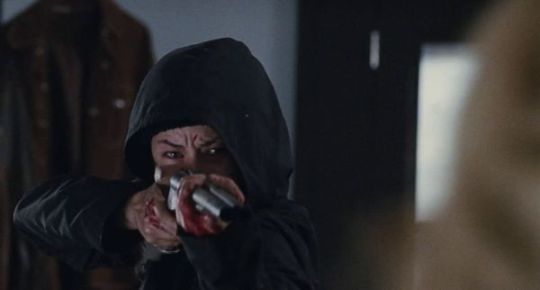
Der Dämon verfolgt sie bis ins Erwachsenenalter. Dem Wahnsinn verfallen findet sie ihre ehemaligen Peiniger aus, die ein friedliches und ungestörtes Familienleben in einem schönen Haus führen. Mit einer Schrotflinte bewaffnet löscht sie jedes einzelne der vier Familienmitglieder aus. Mit den blutigen Überresten ihrer Opfer beschmutzt ruft sie ihre Freundin an, die ihr anschließend beim Entfernen der Leichen hilft.
Ihnen ist jedoch nicht bewusst, dass die Tat nicht unbeobachtet geblieben ist und die Peiniger zurückschlagen.
(10/10)
#martyrs#2008#Morjana Alaoui#Mylène Jampanoï#Juliette Gosselin#Xavier Dolan#Anie Pascale#Catherine Bégin#Seppuku Paradigm#Richard Grandpierre#Simon Trottier#Horrorfilm#Gore#Pascal Laugier
0 notes
Text
EMPIRE OF LIGHT:
Theatre Manager
Struggles with mental illness
Bonds with new hire
youtube
#empire of light#random richards#poem#haiku#poetry#haiku poem#haiku poetry#haiku form#poetic#haiku on tumblr#olivia colman#michael ward#toby jones#colin firth#tom brooke#tanya moodie#hannah onslow#crystal clarke#monica dolan#sara stewart#justin edwards#sam mendes#Youtube
1 note
·
View note
Text
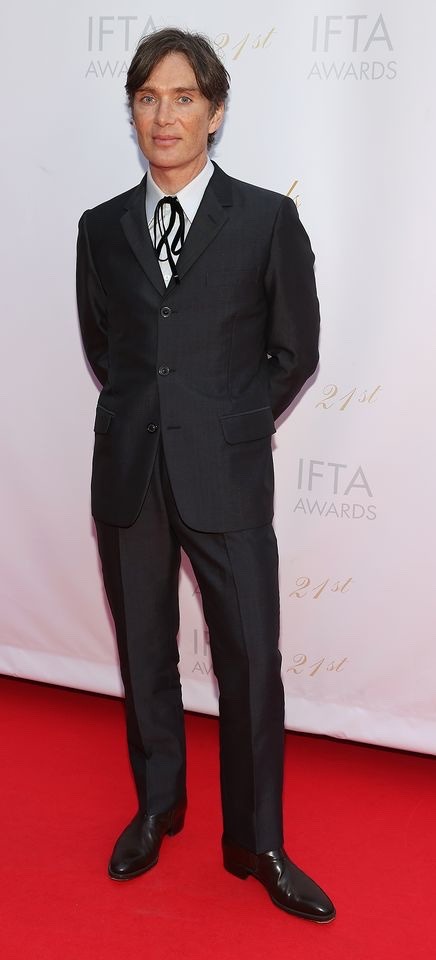
Cillian Murphy Named Best Actor at Irish Academy Awards pictured at the IFTA Awards 2024 at the Dublin Royal Convention Centre. Picture: Brian McEvoy

Agnes O'Casey won Lead Actress for Lies We Tell
Cillian Murphy wins Lead Actor, Agnes O'Casey wins Lead Actress while KIN picks up five awards including Best Drama at Irish Film and Television Awards 2024.
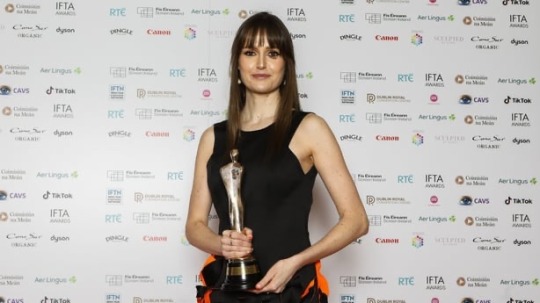
Clare Dunne won the IFTA for Lead Actress for KIN
KIN star Clare Dunne took her third IFTA when she won the award for Lead Actress in a Drama in a category which also included Sharon Horgan for Best Interests, Niamh Algar for Malpractice and Caitriona Balfe for Outlander.
Full list of IFTA 2024 winners:
Film Categories
BEST FILM
That They May Face the Rising Sun
DIRECTOR - FILM
Lies We Tell - Lisa Mulcahy
SCRIPT - FILM
Lies We Tell - Elisabeth Gooch
LEAD ACTOR - FILM
Cillian Murphy - Oppenheimer
LEAD ACTRESS - FILM
Agnes O'Casey - Lies We Tell
SUPPORTING ACTOR - FILM
Paul Mescal - All of Us Strangers
SUPPORTING ACTRESS - FILM
Alison Oliver - Saltburn
DRAMA CATEGORIES
BEST DRAMA
KIN
DIRECTOR - DRAMA
KIN - Kate Dolan
SCRIPT - DRAMA
KIN - Peter McKenna
LEAD ACTOR - DRAMA
Éanna Hardwicke - The Sixth Commandment
LEAD ACTRESS - DRAMA
Clare Dunne - KIN
SUPPORTING ACTOR - DRAMA
Richard Dormer - Blue Lights
SUPPORTING ACTRESS - DRAMA
Maria Doyle Kennedy - KIN
BEST INTERNATIONAL FILM
Oppenheimer
BEST INTERNATIONAL ACTOR
Paul Giamatti - The Holdovers
BEST INTERNATIONAL ACTRESS
Emma Stone - Poor Things
GEORGE MORRISON FEATURE DOCUMENTARY
The Days of Trees
LIVE-ACTION SHORT FILM
Calf
ANIMATED SHORT FILM
Wind & The Shadow
CRAFT CATEGORIES
CINEMATOGRAPHY
Poor Things - Robbie Ryan
COSTUME DESIGN
LOLA - Lara Campbell
PRODUCTION DESIGN
A Haunting in Venice - John Paul Kelly
HAIR & MAKE-UP
The Pope's Exorcist - Orla Carroll, Lynn Johnston
SOUND
Barbie - Nina Rice
ORIGINAL MUSIC
LOLA - Neil Hannon
EDITING
Still: A Michael J Fox Movie - Michael Harte
VFX
Dungeons & Dragons: Honor Among Thieves - Kev Cahill, Diana Giogiutti
#IFTA Awards
Posted 20th April 2024
7 notes
·
View notes
Text
Rusty Appreciation Post
Bochum edition
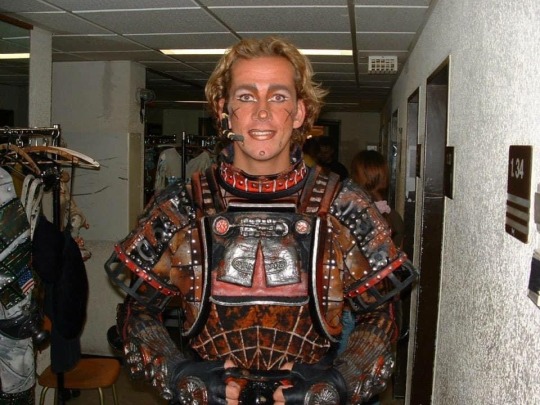
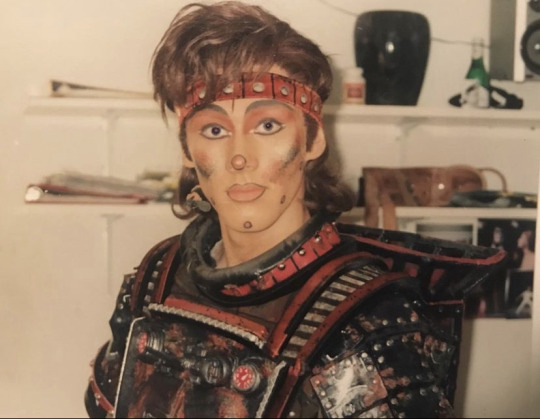
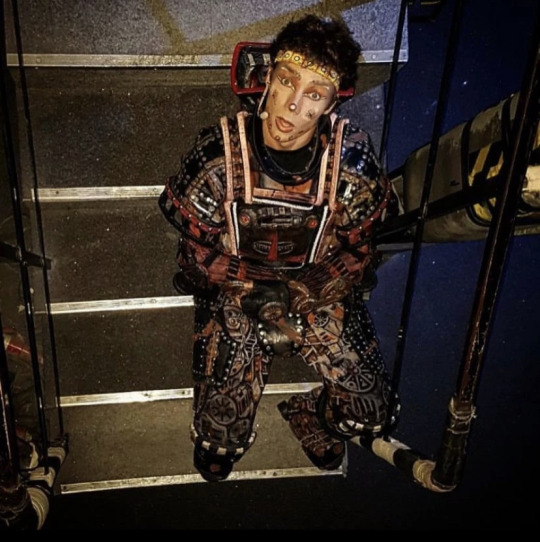
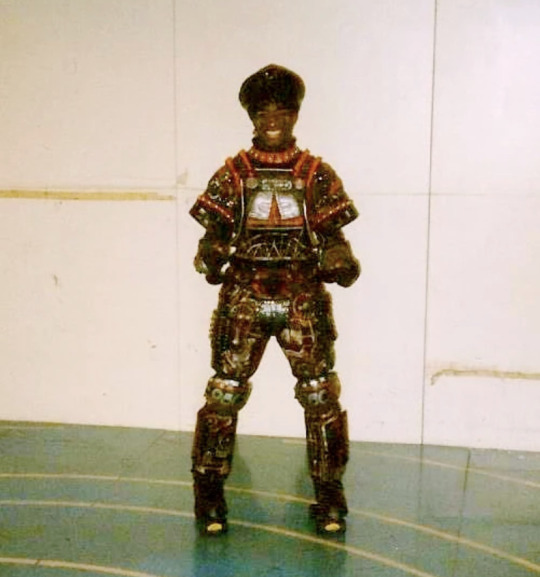
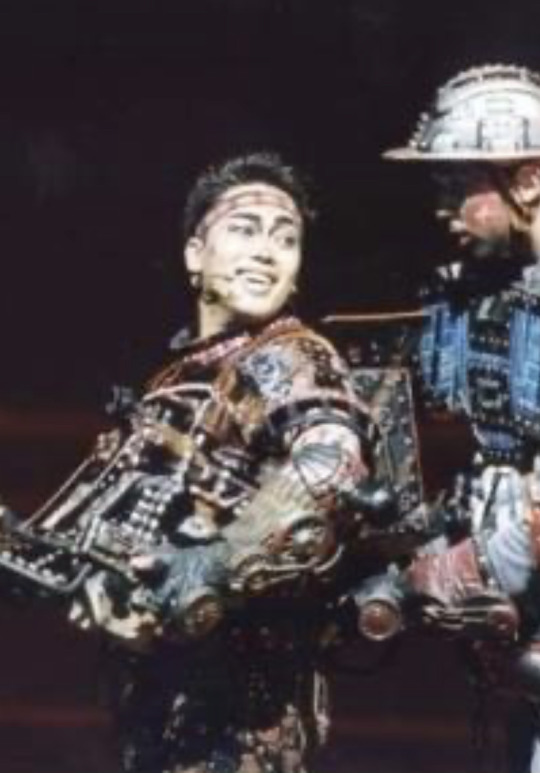
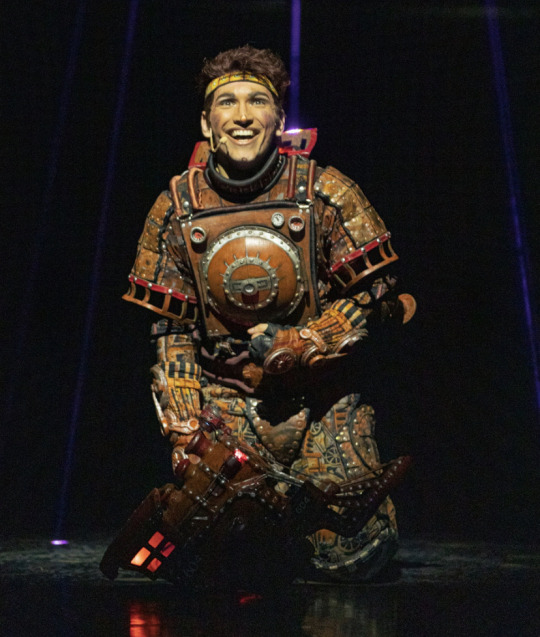
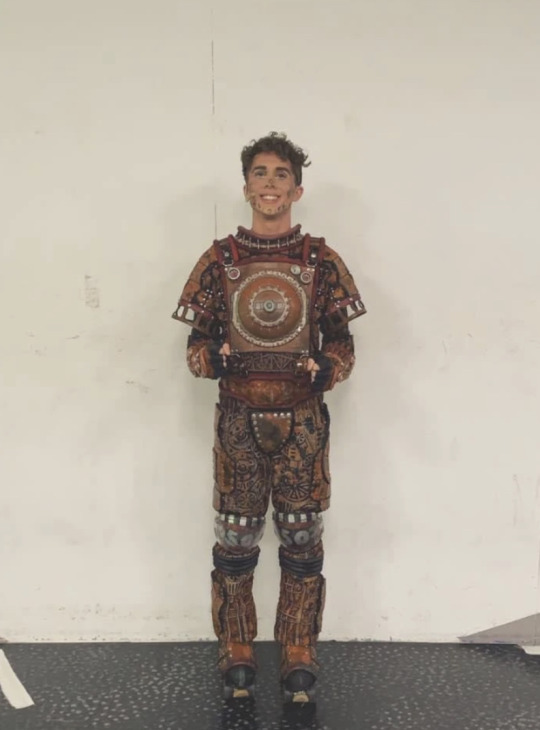

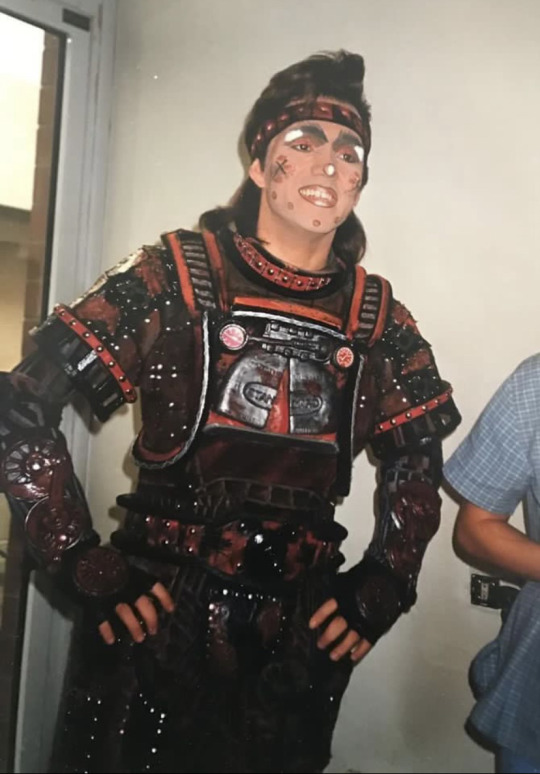

1. Richard Woodford - 2005
2. Mark Daye - 1993/94
3. Michael Pickering - 2017
4. Kellan Davies - 1995
5. Dolan Jose - 2001
6. Max Rizzo - 2021/22
7. Jack Hinton - 2019
8. Adam Bailey - 2014
9. George Alex Livings - 1996 or 1999/00
10. Markus Fetter - 2023 (when he came back as an emergency cover for a week)
I tried to pick some of my "lesser known" favourite Rustys! I know some of them may be well known but they aren't talked about as much!
I know Richard is relatively well-known but not as much for covering Rusty 😄🤎
62 notes
·
View notes
Text
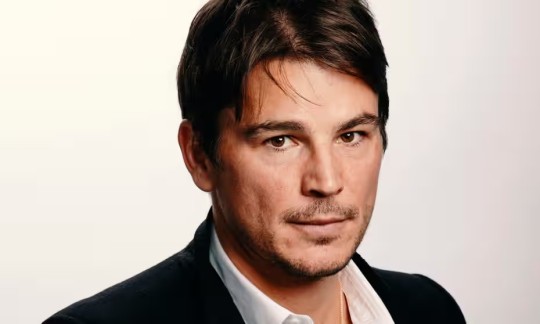
Josh Hartnett: 'People genuinely thought I'd been thrust on them'
Ryan Gilbey
Twenty years ago he was one of the world’s hottest young actors, before he retreated – and ended up in Surrey. He explains why he had to leave Hollywood – and what he knew about Harvey Weinstein
Fri 23 Oct 2020 06.00 BST
Source :
Josh Hartnett is sitting at home in Surrey, thinking about the time he was asked to play Superman. “I had this idea that because he lives in this world where he can’t touch anything without it flying across the room, he has become almost afraid of himself and his own power. He doesn’t know how to be Superman any more. He’s so afraid, he has become almost neutered by the experience of living on Earth, where he can blow things up just by looking at them.”
The studio demurred – “They didn’t really want a fear-based character at the centre of their movie,” he says wryly – and Hartnett walked away. But his Superman concept now feels like a metaphor for what was happening at the time in his own life, as he became increasingly overwhelmed, even horrified, by his status and the hysteria that surrounded it. Twenty years ago, the hottest young male actors in Hollywood were Leonardo DiCaprio, Will Smith, Matt Damon, Ben Affleck – and Hartnett. Michael Bay, who directed him in Pearl Harbor, put it bluntly: “He’s going to be fucking huge.” The actor grimaces at the mention of that. “Huge was never something I aspired to,” he says.
Back then, he seemed like a pretty kid who had got in over his head. Now 42, he has acquired the squinting, quizzical handsomeness of Richard Gere. He and his wife, the British actor Tamsin Egerton, moved to Surrey with their two young children to be closer to her parents, he explains. “And then, of course, coronavirus ...” In other words, they’re not going anywhere. So he has time to talk and a new film to talk about: the factually based thriller Target Number One, which is better than any of its plucked-from-a-hat titles (it has also been known as Gut Instinct and Most Wanted) might suggest.
This is partly due to the dazzling Antoine Olivier Pilon, star of Xavier Dolan’s psychodrama Mommy. He plays a real-life petty drug dealer who was sentenced to life in a Thai jail after being set up by Canadian police. Hartnett is solid in the less showy, meat-and-potatoes role of the journalist Victor Malarek, who fought to expose the truth. In this capacity, he gets to perform the time-honoured All the President’s Men routine of storming into his editor’s office, tossing a newspaper on the desk and demanding to know where the hell his story is.
Hartnett does his homework. On The Virgin Suicides, it wasn’t enough to play what the director Sofia Coppola had written; he also raked over his character, a dreamy high-school stud, with Jeffrey Eugenides, who wrote the original novel. On Brian De Palma’s film noir The Black Dahlia, Hartnett trained as a boxer for several months, simply because his character, a cop, used to be one. Naturally he met with the real Malarek before playing him. Why? “I wanted to see if he was full of shit.”
Malarek, he explains, has been accused by his critics of putting himself at the forefront of his own stories. “Ultimately, Victor is a humble man, but he does think of himself as someone who stands up for people in vulnerable positions. He likes to insert himself into a situation, though in my opinion what he’s really doing is putting himself in the line of fire. In a way, he almost downplays his own contribution.” Malarek has said that he had no idea who Hartnett was. As someone who has spent the last 15 years or so running from fame, this must have pleased him. “I didn’t assume he’d know me,” he says. “My interest in going to meet him was not to have flowers laid at my feet.” So he didn’t take along a signed Pearl Harbor poster? “I should have done. That would have been a great introduction. ‘Hi, I used to be somebody …’”
Quite. At the end of the 90s, Hartnett was everywhere. He starred in back-to-back horror hits – the aliens-in-high-school romp The Faculty and the sequel-cum-reboot Halloween H20 – and resembled a walking shampoo commercial in The Virgin Suicides, where he sashayed in slow-motion to the sound of Magic Man by Heart.
“It’s a little bit heartbreaking to see all that time has passed,” he says. “I was a child. I was 19. The Virgin Suicides felt like a group of friends all pulling together. I think I’m still looking for that experience whenever I make a film.”
The Faculty and Halloween H20 were produced by Dimension, the horror arm of Miramax, making Hartnett part of the Weinstein brothers’ stable of talent. “I was a kid who they felt they should invest in, but I didn’t spend a ton of time with them,” he says. “We had a sort of antagonistic relationship because the contract I signed for those first two films guaranteed me to be a part of, like, five more or something. They’re called contract extensions. I was told at the time that nobody ever uses them, but then I guess I became popular and they decided to, um, exercise that right. What they did a few times was to jump on other projects I was working on already and become co-producers.” These included O a modern-day Othello with Hartnett impressively coiled as the Iago figure, and the comic thriller Lucky Number Slevin, in which he seemed to be poking fun at his own image by spending the first half-hour scampering around in nothing but a towel.
He shifts uneasily when I ask whether he was surprised by the revelations about Harvey Weinstein. “There are all sorts of rumours about guys like that which permeate the business and you think, ‘That’s awful.’ The casting couch was a thing people joked about when I was first in the industry, so it was an open secret that this business is a little bit fucked up.”
When he was offered Pearl Harbor, his instinct was to turn it down. “I didn’t necessarily want things to change that much,” he says. “I was happy with the amount of fame I had and the types of roles I was getting. At the same time, I asked myself: ‘Am I just afraid that by doing Pearl Harbor, I’m going to enter a new category of film-making that I might not be ready for?’ I ultimately chose to do it because turning it down would’ve been based on fear. Then it defined me, which means I was right to fear it.”
His co-stars didn’t have it easy either. Kate Beckinsale was told to work out (“I just didn’t understand why a 1940s nurse would do that,” she said) while Affleck was ordered to get new teeth. “Well, they are great teeth,” Hartnett says. “I was asked to work out, too. But you know, I could have used it. I was 165lb wet. I was a really skinny kid.”
As well as his own misgivings about the project, there was the heightened press attention, including a splashy Vanity Fair interview with him from the set of Ridley Scott’s Black Hawk Down. “Oh, that was an awful piece,” he shudders. “Was there even a quote from me in it, or was it just everyone talking about how hot I was? People got a chip on their shoulder about me after that. They genuinely thought I’d been thrust on them. It was a very weird time.”
It was around then that he plotted his calculated retreat. After Superman, there were reports that he had also turned down Batman; in fact, he didn’t get any closer to that part than a conversation with Christopher Nolan. But the perception of him in Hollywood began to change. “They looked at me as someone who had bitten the hand that fed me. It wasn’t that. I wasn’t doing it to be recalcitrant or a rebel. People wanted to create a brand around me that was going to be accessible and well-liked, but I didn’t respond to the idea of playing the same character over and over, so I branched out. I tried to find smaller films I could be part of and, in the process, I burned my bridges at the studios because I wasn’t participating. Our goals weren’t the same.”
He has put his movies where his mouth is, working with idiosyncratic directors such as Tran Anh Hung on the thriller I Come With the Rain and Atsuko Hirayanagi on the comedy Oh, Lucy. Nor is he averse to the mainstream: he will next be seen alongside Jason Statham in Guy Ritchie’s Wrath of Man. But it’s a measure of how unusual it is for a star to withdraw so early in his career that by the time Hartnett made The Black Dahlia in 2006, GQ magazine was already referring to it as his comeback.
“I’m happy to be done with that era and to be making films that are more personal to me,” he says. “Directors are coming to me to play characters as opposed to versions of a hero I played in a movie once.”
He is nothing if not conscientious. A few days after our Zoom conversation, he phones me because something has been bothering him: he doesn’t feel he made his feelings about Weinstein clear. This time, he puts it as plainly as he can. “I wasn’t surprised he was a creep,” he says. “But I guess I was surprised at the extent of his creepiness.” He’s concerned, too, about what comes next. “The shameless seem to be finding it easy to make a comeback. Louis CK has been pretty shameless. Harvey Weinstein, if he had the tiniest bit of daylight in there, would find a way to get back in. Those are situations that freak me out.” But there are, he says, visible changes taking place. “Different things are expected of the way people act on set. There’s an open line of communication now for anyone who feels they’re being harassed. And there’s less of the so-called locker-room humour that people used to hide behind.”
Was he ever harassed as a young actor? “The last thing I want to do is come across like … You know, I’ve been in situations where I’ve been uncomfortable with my boss’s behaviour but I’m not gonna say …” He changes tack. “That’s not my experience and it’s not my place to claim that. It makes me feel icky to try to do so.”
He also tells me that he went back to that Vanity Fair article and realised it wasn’t so bad after all. “It’s just that it happened at a time when I wasn’t that famous, and it seemed to already be asking whether I should be or not. I felt like: ‘Oh my God! I’m not the tallest poppy yet – don’t cut me down!’ I was being compared to Tom Cruise and Julia Roberts and that’s insane. It was a set-up-to-fail moment.” He gives a sigh. “It was actually an interesting look at the nature of fame. If only it wasn’t about me.”
#josh hartnett#beautiful giant#the guardian#interview#quotes#the virgin suicides#the black dahlia#lucky number slevin#black hawk down#pearl harbor#Othello#the faculty#halloween h20#wrath of man#oh Lucy#i come with the rain#penny dreadful#target number one#superman
23 notes
·
View notes
Text
I can't believe that my dedication to collecting any bits of connection between John Oliver and British comedy have somehow, until today, missed the fact that he did RHLSTP in 2021. I listened to it for the first time today and enjoyed it.
First of all, I have to address this, because I consider myself a pretty thorough historian of John Oliver's pre-America work, and I have absolutely never heard of this thing that John claimed was at some point broadcast:
Whatever the hell they're talking about (weird panel thing where apparently Richard Herring drew rude things while he was supposed to be working like Jamie MacDonald on The Thick of It), which John Oliver claims has been broadcast, it's definitely not on IMDB. I've done a fair bit of Googling in the last hour, and became convinced that this is a dream John Oliver and Richard Herring have both had, given that in all my extensive archaeology of John Oliver's British career, I have never, ever heard of this. (I enjoyed the talking shit about Mark Dolan, though.)
Then I realized: actually, I think I have. Because I have once before found myself looking at John Oliver's IMDB page for a Channel 4 thing from the correct time, and been surprised to find nothing there. That would be when I first heard the radio show Daniel Kitson's Listening Club, and Kitson got my hopes up in one episode by saying he'd have his friend John on the following week, but then the next week said John had to miss it to film some Channel 4 thing. This surprised me, because those radio episodes were from February 2006, and there is nothing on John Oliver's IMDB page from 2006 besides Mock the Week. And nothing British from 2007, so it's not like he could have filmed it in February and then they just took a year to put it out.
I've just gone back to find that again and cut out the relevant clips:
(Please note: You do have to ignore a very 2006 use of the word "gay" during this clip, which I justify based on the fact that Kitson did like saying that ironically back then, which isn't good, but I was in high school in 2006 and given the million times a day I heard it said unironically, by 2006 standards, if you were putting some irony in your "gay" slur usage then you were doing better than most people. My general view on Kitson's former penchant for ironic bigotry is you cannot hold people to everything they said in 2006.)
That tracks. Daniel Kitson described a show for More4 that John Oliver did not like. So it did really happen. But Google yields nothing, checking various combinations of "John Oliver Richard Herring Andy Zaltzman Mark Dolan More4". Adding "2006" to that search doesn't do anything except let me know that in that year, all three of those men were nominated for multiple awards (Richard Herring: Worst Radio Personality, Mark Dolan: Worst Podcast, John Oliver: Worst Stand-Up) for terrible comedy by an extremely judgmental message board (that now has much nicer people on it, really, you can't hold a comedy forum to everything it said in 2006). I tried throwing in Andy's name as it sounds like he was there too, it didn't help. I'd love to know what this was. It sounds terrible and I want to watch it.
Anyway, the rest of the RHLSTP was good. There was some chat about times they've worked with Pythons, mainly focusing on the nice ones (Palin and Jones), that I enjoyed. Some re-hashing of stories I've heard before but always enjoy hearing again, about old Edinburgh previews that went very badly and John pulled out the story of that time he had a 100% walkout at one. I once again heard John Oliver tell the story of how he ended up on The Daily Show, and like always, the story is basically "I don't know someone just called me", making me wonder how he could have gone all those years and not asked Jon Stewart how it happened. I noticed that this time he didn't add the detail he usually adds, with is that he's heard a recommendation from Ricky Gervais was involved. Not sure if it just happened to not come up, or if by 2021 he didn't really want to keep making that association.
And there was some stuff near the end that I found really interesting, about The Mash Report's cancellation and how tricky it is to get away with political comedy on major networks, particularly the BBC with its balance rule, and how lucky John feels to have the independence he's granted by HBO. This went along with some broader discussion of how John Oliver gets away with and/or enjoys taking stupid risks and getting in trouble for comedy, which also ground I've heard covered before but always like to hear about. Some veneration of Dan Harmon that I could live without, though my roommate and I did re-watch the first few episodes of Community the other night and it reminded me of how much I love that show.
Oh, and they discuss some of the terrible movies John's done. He even briefly defends The Love Guru, which I have never heard him do before (not the whole movie, just claims there are a couple of funny bits, which is a small change from the outright disowning it that he has rightfully done every other time I've heard him discuss it). And, for the first time that I've heard, gave a bit of an explanation of why he did that terrible movie, which was basically that there was a writer's strike on and he needed work especially with his precarious immigration status, and he liked Mike Myers and didn't know it would be terrible. Fair enough.
They also discussed The Smurfs, they gave me a companion clip to go with this clip from The Bugle, the Bugle clip that I have often described as the absolute cutest shit I've ever heard:
(Separately from it being so adorable, this clip also contains Andy Zaltmzan using one of his favourite nicknames for John Oliver, "The Hostess with the Mostess", which I remain convinced was the inspiration for the "Hostus Mostus" title card on Last Week Tonight.)
They gave me a companion clip to the most adorable podcast clip in the world! From almost exactly 11 years later, he confirms that the story told in the above clip is true:
...Awwwww. Awww. Aw you really did mean it. You guys. You guys out there getting 100% walkouts on Edinburgh previews and nominations for the worst comedy in Britain by some people in 2006 on a comedy message board for people who hated all comedians besides Chris Morris. You remembered, even 11 years later. You guys are the best.
Richard Herring: You seem to be the same person as you were ten years ago. I’ve seen a lot of people go to Hollywood and…
John Oliver: I haven’t gone to Hollywood!
Richard Herring: …or to America, or become very successful, and change quite a lot. Do you still feel like you’re the same John Oliver who died at all those gigs?
John Oliver: I think so. I still fundamentally identify more with failure than success.
7 notes
·
View notes
Text
youtube
As the Empire Crumbles ... Controlled UAP Disclosure? | The Richard Dolan Show
Perhaps there are no coincidences. Humanity reaches the AI Era as we seem ready to acknowledge the reality of non-human advanced intelligences here in our world. It’s also interesting that this is happening as the US-led global order looks to be disintegrating before our eyes.
#disclosure #uap #unidentified
UAP historian Richard Dolan looks at our current conversation and discusses what’s missing.
With his extensive knowledge, Richard offers thought-provoking insights, analysis, and discoveries that challenge preconceived notions. Explore video content where Richard shares meticulous research and engages in enlightening discussions about intelligent disclosure.
13 notes
·
View notes